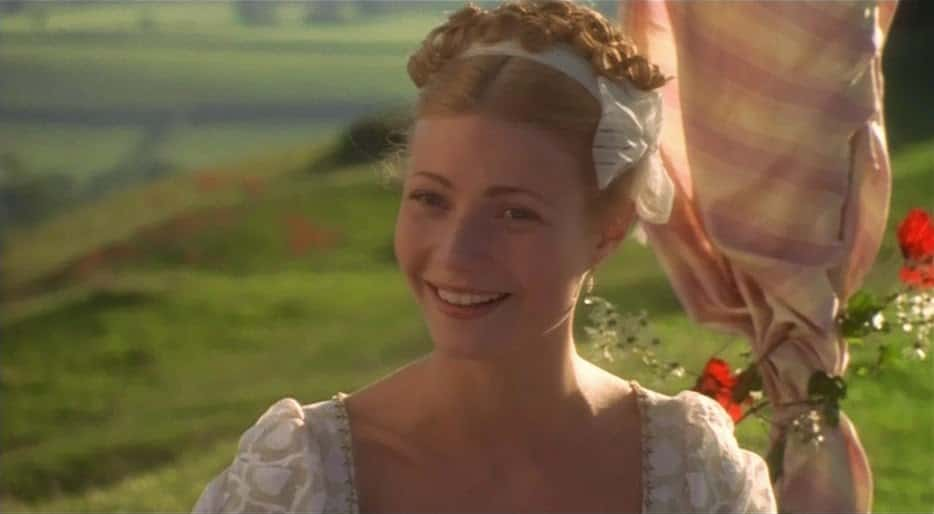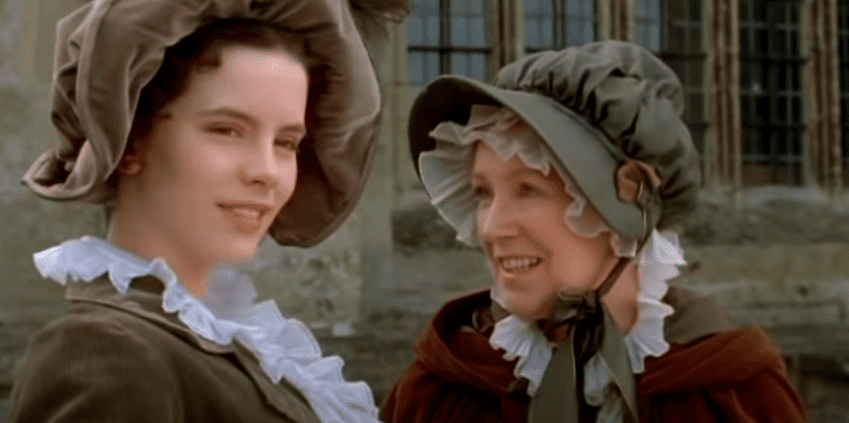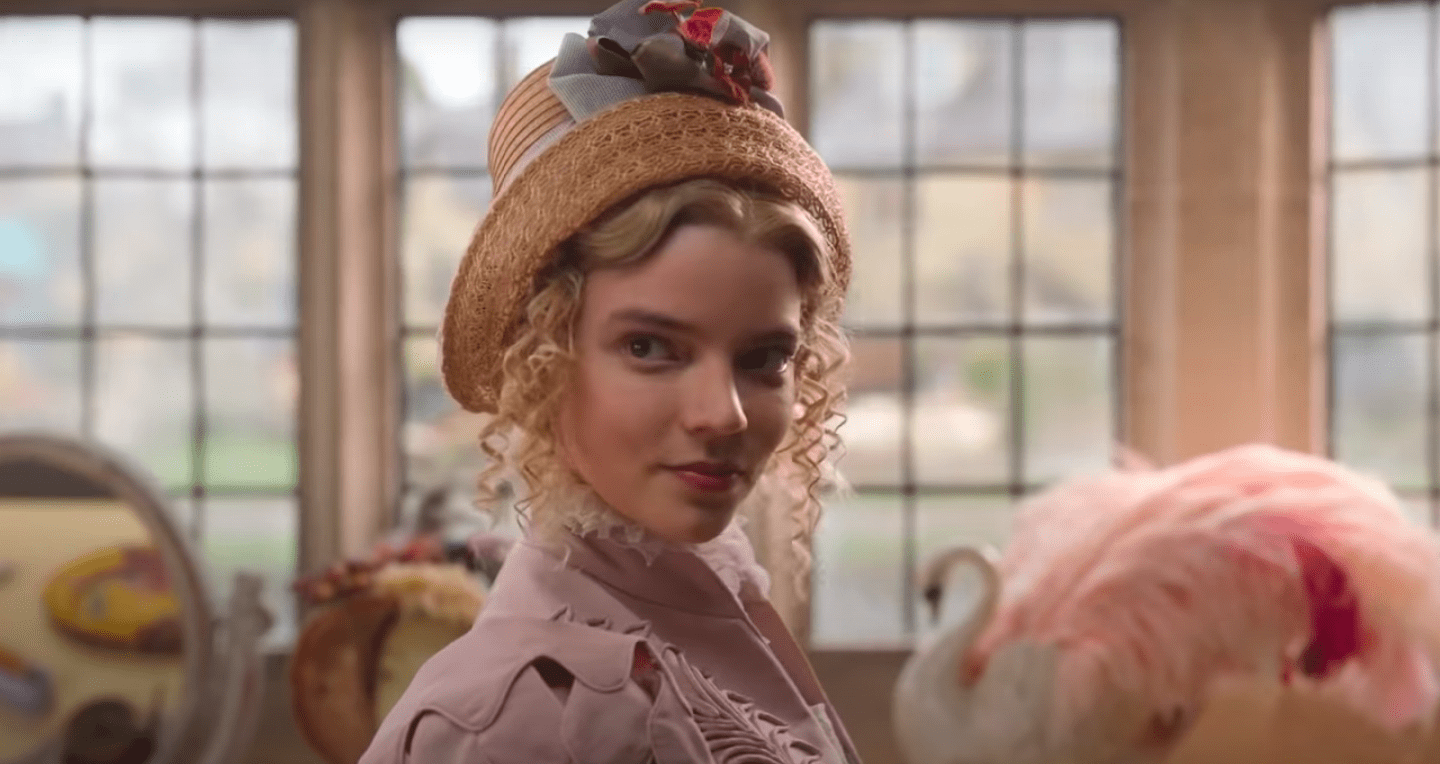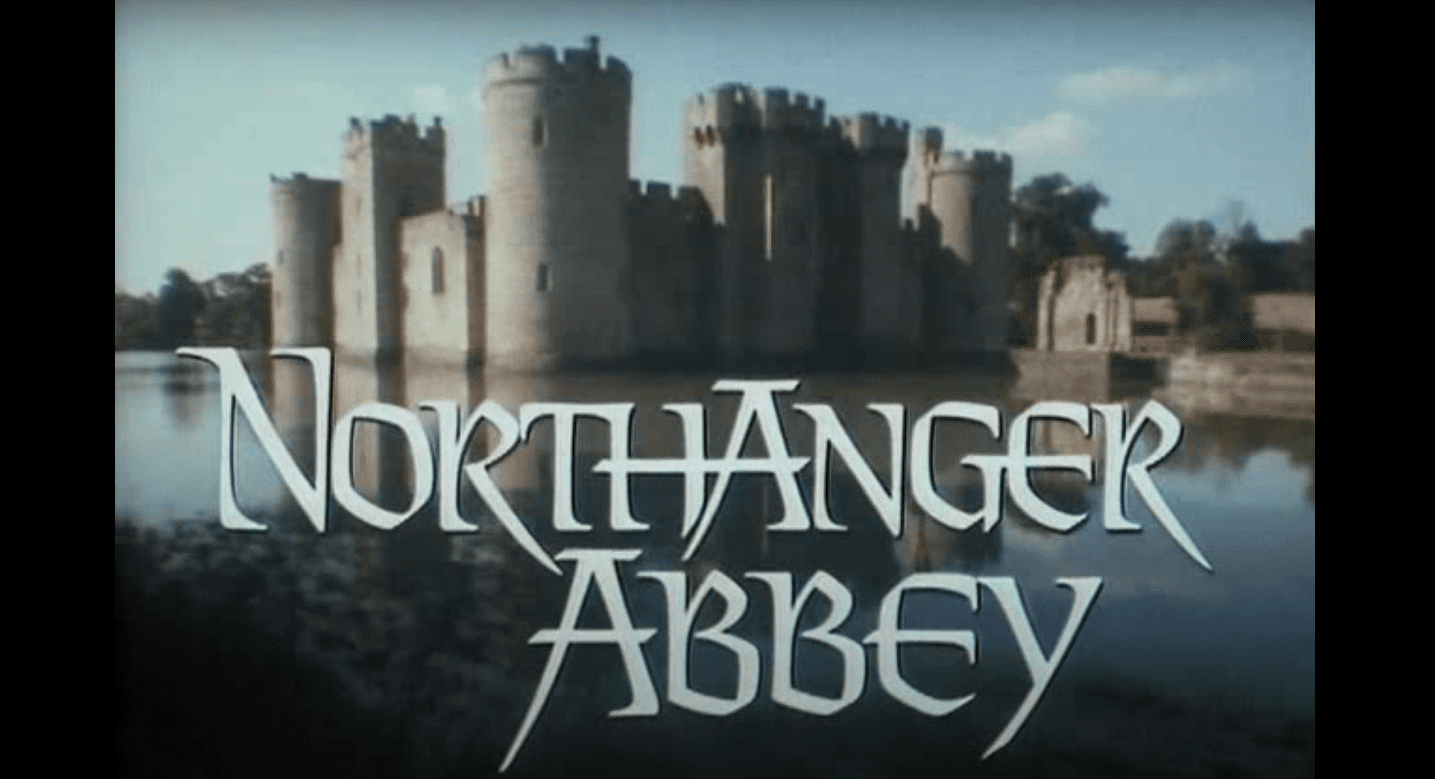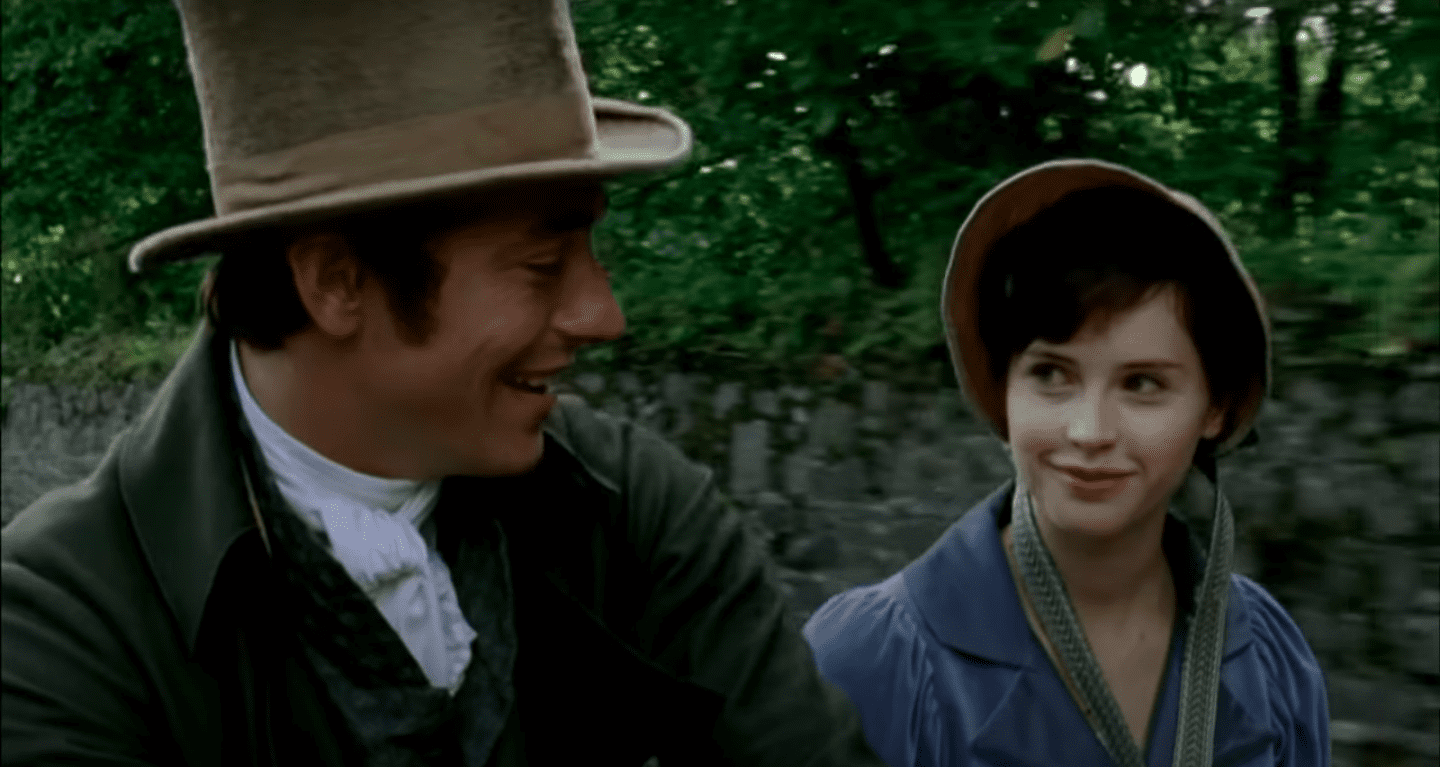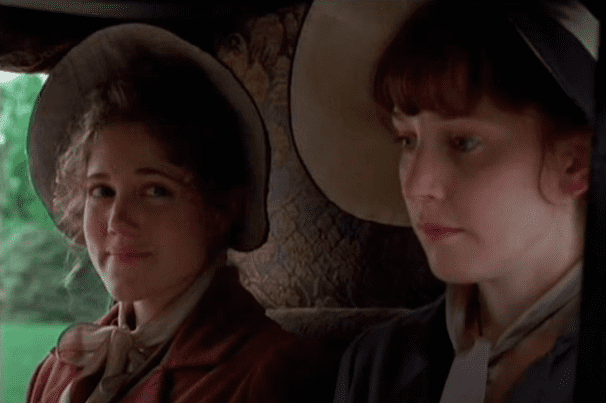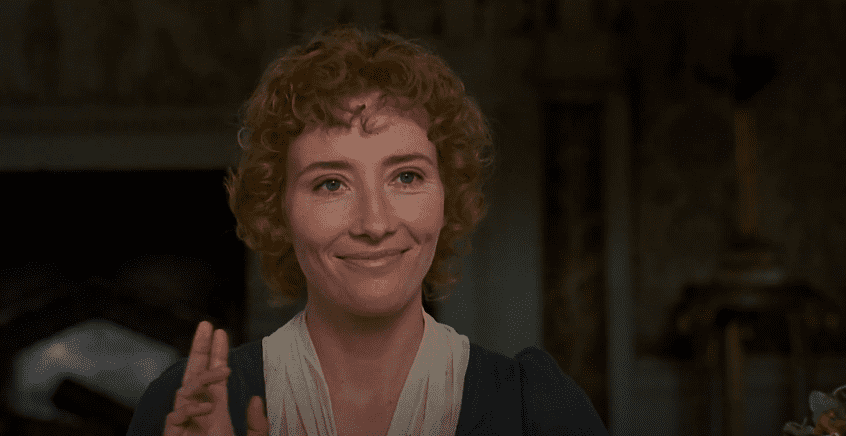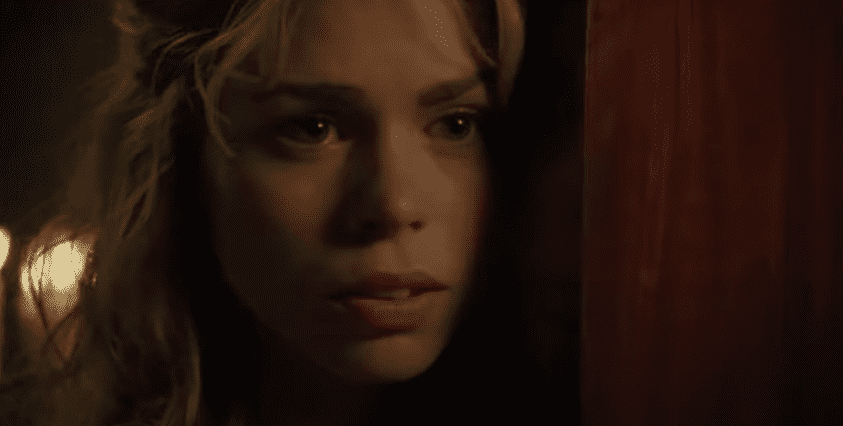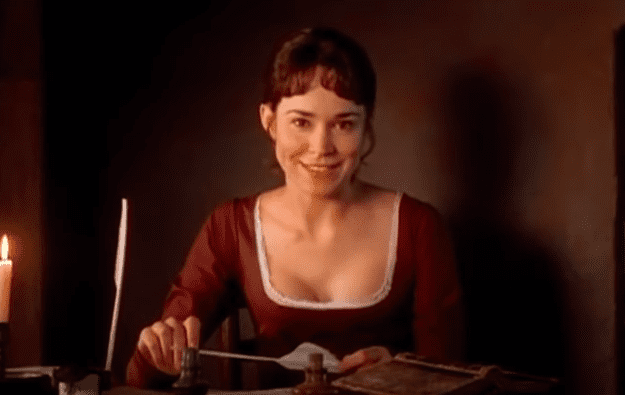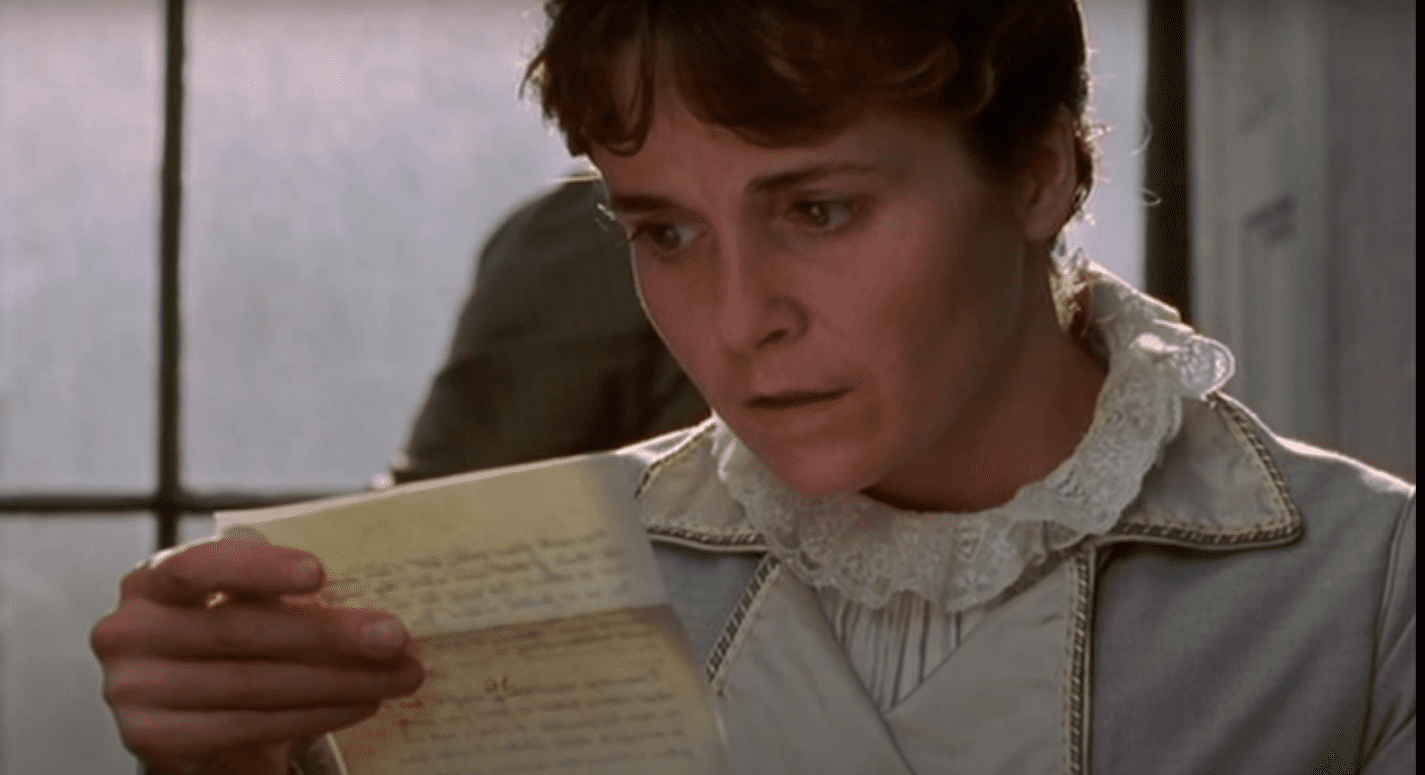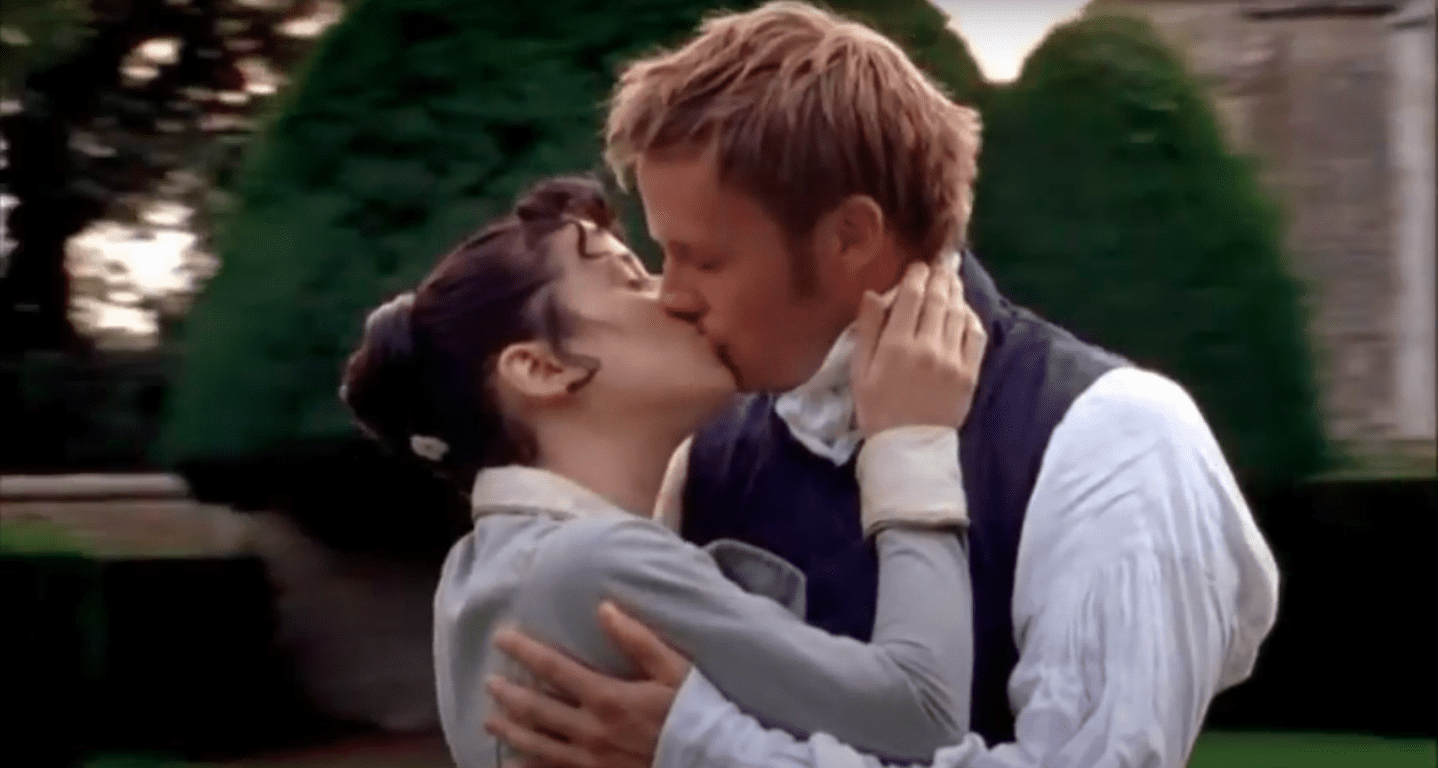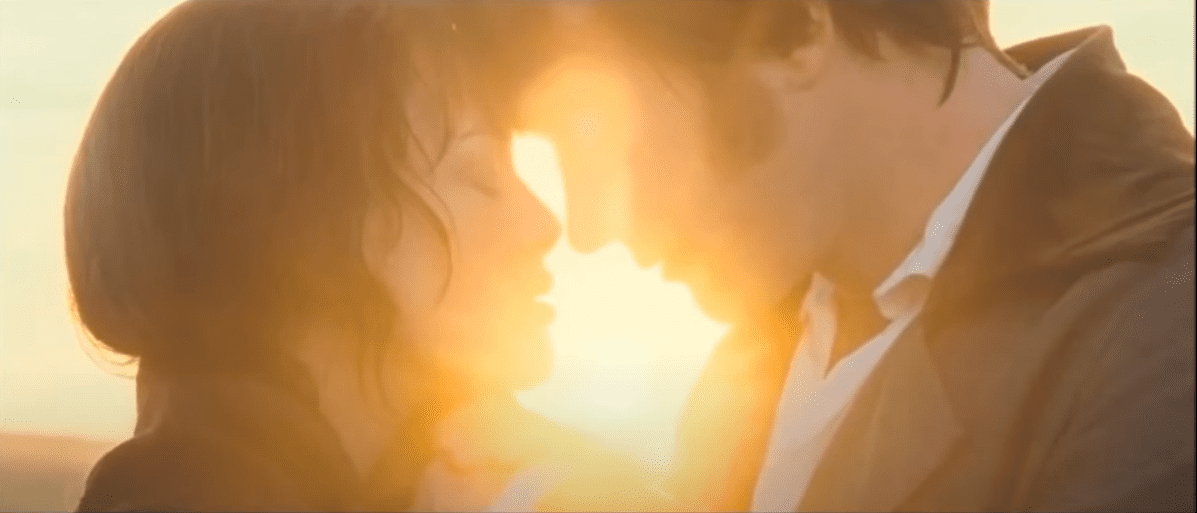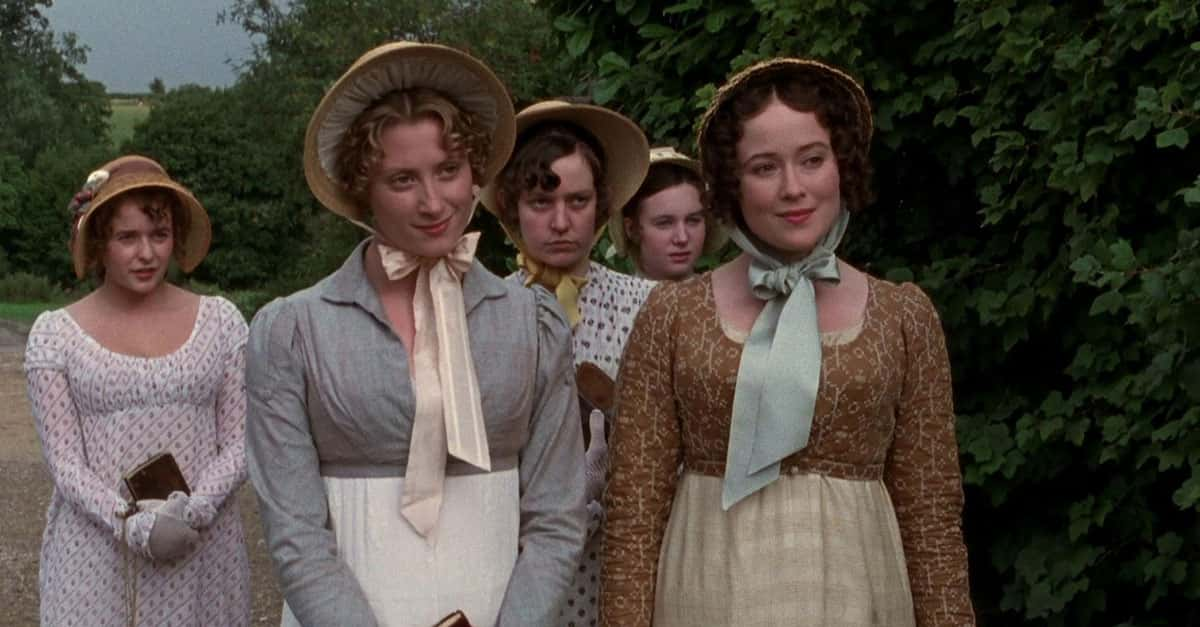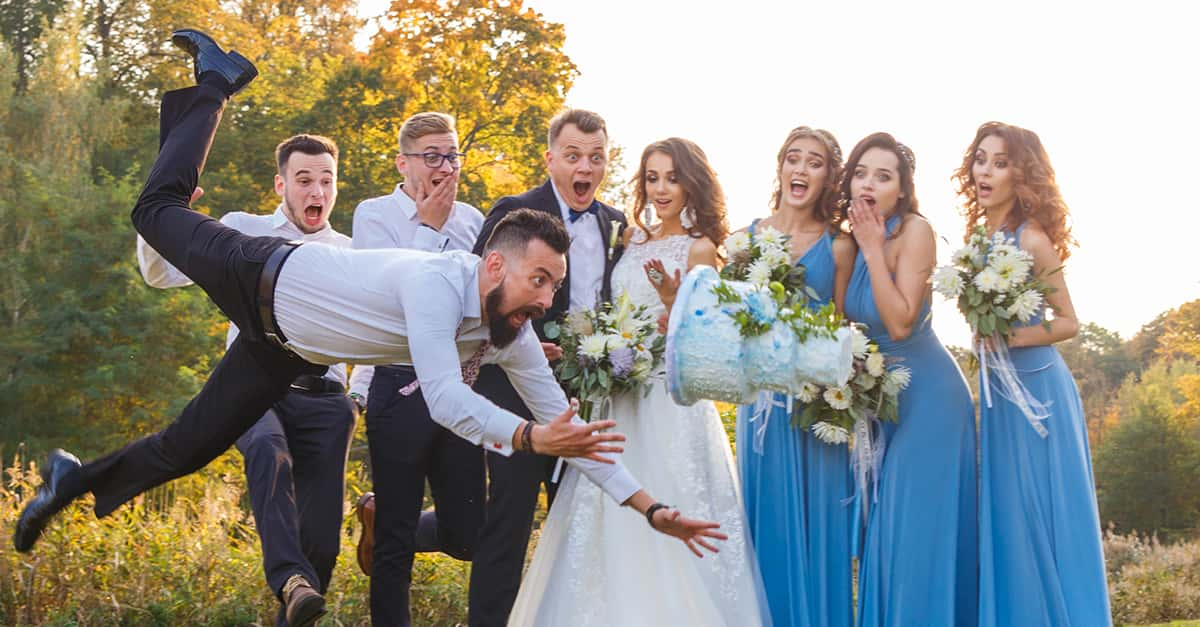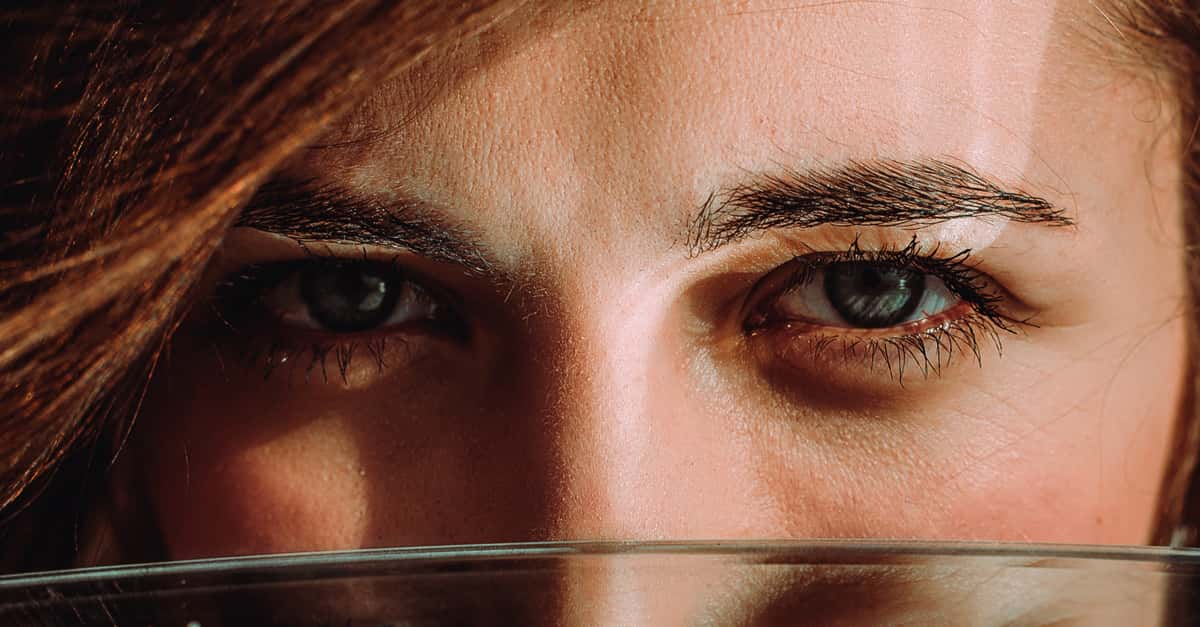Despite the fact she hasn’t been alive for hundreds of years, 19th-century author Jane Austen is still relevant today—and the constant parade of her cinematic adaptations proves it. Whether it’s a lush Hollywood blockbuster or a loving BBC miniseries, there are so many Austen adaptations that it’s hard to know which to pick before snuggling in for a comfy night of historical drama. Well, the wait is over. Here’s our list of the best Jane Austen adaptations, ranked.
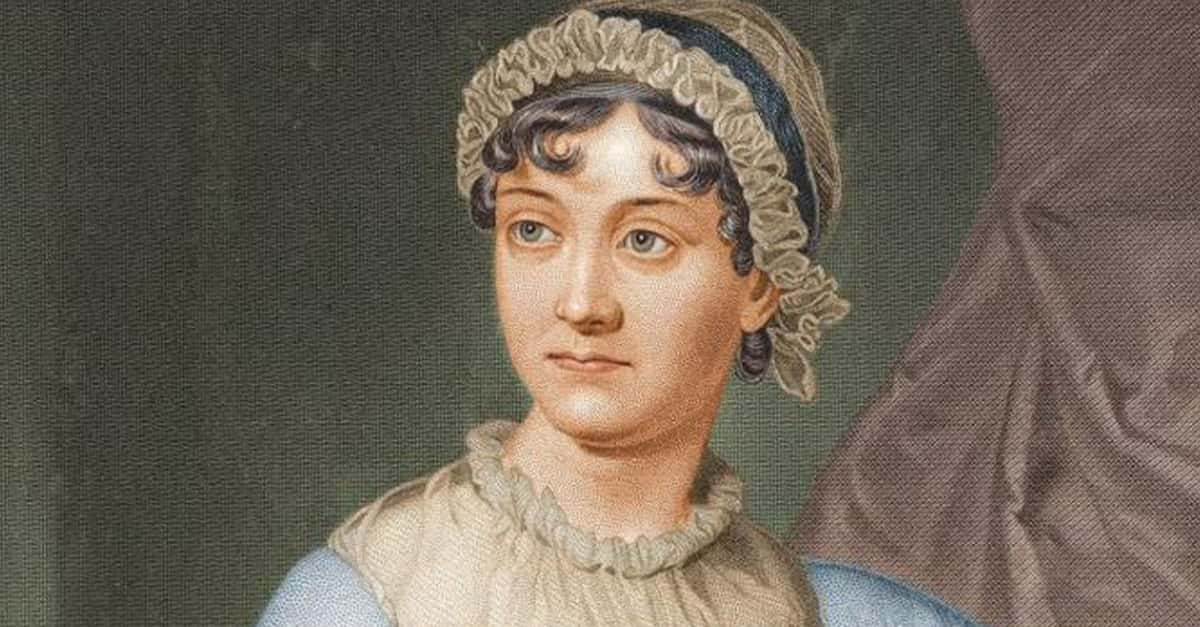
Jane Austen Adaptations Ranked
Emma: The Bottom Tier
Emma might be Austen's most difficult novel to adapt. After all, Emma Woodhouse is alternately smug and sweet, bratty and buoyant. Put the wrong actress in the role and the whole thing gets decidedly unpleasant. The same goes for Mr. Knightley, the older love interest whose admonishing ways can quickly turn mega unsexy. With lovebirds like these, filmmakers have one tricky job on their hands. So who gets what right?
4. 1996, Gwyneth Paltrow
This bottom ranking for a beloved adaptation of Emma may be a controversial choice, but whether or not you like this film hinges entirely on whether you can stand Gwyneth Paltrow. I can’t. While that’s kind of the point when it comes to Emma (who is often meant to be insufferable), it’s difficult to feel any empathy for her throughout the film.
Bonus points: The production value is great, and Jeremy Northam is a pretty smouldering Mr. Knightley.
3. 1996, Kate Beckinsale
This BBC adaption came out the same year as the Gwyneth Paltrow version. Though it was largely forgotten in Paltrow’s wake, this movie actually fixes some of the Hollywood blockbuster’s mistakes. Kate Beckinsale is both sharp and charming as Emma, though admittedly the production value on this one is a little low. Think: a lot of darkened rooms and echoing audio.
Bonus points: Andrew Davies’ script for the film is excellent.

Sign up to our newsletter.
History’s most fascinating stories and darkest secrets, delivered to your inbox daily. Making distraction rewarding since 2017.
Emma: The Cream of the Crop
2. 2020, Anya Taylor-Joy
The latest Austen offering, 2020’s colourful adaptation of Emma, looks like a box of macarons filmed through an Instagram filter. It also features rising star Anya Taylor-Joy as the brattiest Emma yet. Even so, somehow Taylor-Joy manages to make viewers root for her, if only so she can stop being so dang spoiled.
Bonus points: Has an actually sexy Mr. Knightley in Johnny Flynn, and is probably the funniest of all the adaptations.
1. 2009, Romola Garai
When it comes to ranking Austen adaptations, it’s no wonder that a miniseries has a huge advantage. Multiple episodes allow us to really know characters and see their growth. The 2009 Romola Garai and Jonny Lee Miller Emma miniseries is all the better for its longer length. It also helps that Garai plays Emma not as a smug jerk, but an over confident girl out of her depth—and that Miller has his freaking beautiful face.
Bonus points: The locations in this one are exquisite.
Northanger Abbey
One of Austen’s lesser-known novels, Northanger Abbey tells the tale of the impressionable Catherine Morland. This sweet, naive heroine is herself locked in a supposed Gothic intrigue while she flirts with the dashing Henry Tilney and the OG tool John Thorpe. It’s a fun and subtly thoughtful novel about womanhood, but on film? Northanger Abbey hasn't found its perfect adaptation just yet.
2. 1986, Katherine Schlesinger
There’s nothing inherently wrong with this adaption. However, in 1986, the BBC weren’t exactly rolling in dough, which comes across in the production value. This movie looks a little run-of-the-mill, though this may also be because it’s one of the oldest entries on this list. Schlesinger and her Tilney (played by Colin Firth's brother Peter) are fine, but unless you’re an Austen completist, you can probably skip this one.
Bonus points: Support...the BBC?
1. 2007, Felicity Jones
This 2007 adaptation kinda wins by default, but hey, it still features attractive people doing some nice things in great clothing. Felicity Jones plays Catherine Morland with charming, wide-eyed curiosity, and JJ Feild gives Nice Guy Tilney a bit of an edge. If you want to immerse yourself in some light Gothic, this is your Austen adaptation.
Bonus points: The location for the titular Northanger Abbey is jaw-dropping, and I want to live there.
Sense and Sensibility
The most sensible of Austen’s novels (no pun intended), Sense and Sensibility can come across as more dour than some of the period confections on this list. After all, it's kind of hard to drool over heritage homes and hot men in cravats when the plot focuses on Elinor and Marianne Dashwood learning to live in moderation. Instead of a fun-filled romp, S&S sees its heroines live in a modest cottage, grieve their dead father, and get hitched to kind of disappointing men. Womp womp.
2. 2008, Hattie Morahan and Charity Wakefield
This peppy, plush version of Sense and Sensibility saw Andrew Davies, the beloved mind behind 1995's Pride and Prejudice, return to adapting Austen. As always, Davies injects excitement and freshness into the story, including scenes that the Jane Austen Society deemed “too raunchy.” Yet for a miniseries, it glosses over a lot of the characters' motivations to its detriment.
Bonus points: Um, anything “too raunchy” is just fine by me!
1. 1995, Emma Thompson and Kate Winslet
Ang Lee’s 1995 Sense and Sensibility kick-started the 90s renaissance of Austen adaptations for a reason, people. The locations are muted but beautiful, the supporting cast is charming, and Emma Thompson and Kate Winslet are predictably delightful as the Dashwood sisters. I could complain (and I will) that my beloved Alan Rickman’s Colonel Brandon just isn’t hot enough, but then again, the Colonel never is. This is a sweet and loving letter to one of Austen’s less flashy books.
Bonus points: I will watch Emma Thompson do literally anything.
Mansfield Park
Like Northanger Abbey, Hollywood tends to stay away from Mansfield Park, partly because the people in it are much pricklier and less likeable than other Austen characters. Case in point? The whole book takes place within the backdrop of slavery. Our heroine, the traumatized Fanny Price, gets foisted onto wealthy relatives who got rich off of English colonialism. It's not exactly a feel-good premise.
2. 2007, Billie Piper
This 2007 adaptation of Mansfield Park features Billie Piper, AKA one of the most charismatic actresses ever. Except, well, she’s not that great in the role. Fanny Price, who is at once passive and stubborn, is notoriously difficult to play, and Piper’s good-time gal charms aren’t up to the task, though she does give it the old college try.
Bonus points: Hayley Atwell plays a catty rich girl, and it’s glorious.
1. 1999, Frances O’Connor
Frances O’Connor has a go at Fanny Price in this wry, somewhat experimental adaptation, and it mostly works. O’Connor has a haunting, curious gaze that goes a long way in unlocking Price's layered character, and the film plays around with its source material in inspired ways. This MP includes elements from Austen’s life and confront the impacts of slavery head-on.
Bonus points: Despite being one of the least faithful adaptations on this list, this sharp, satirical Mansfield Park might have the most similar tone to Austen’s novels.
Persuasion
The last of Austen’s completed novels, Persuasion tells the sweet story of love lost and found again. After Anne Elliot's hoity toity friend "persuades" her to reject Captain Wentworth’s marriage proposal, Anne learns the meaning of regret. For the rest of the novel, she's wracked with anxiety and self-doubt, especially when Wentworth re-enters her life. It might sound like a bit of a downer, but Persuasion's autumnal atmosphere and heart-bursting ending make it ripe for adaptation—even though we haven’t got the perfect one just yet.
2. 1995, Amanda Root
The 1995 Persuasion is another period piece in the old-style BBC mode: Fairly well acted, scripted, and costumed, but overall a little washed out and dull. Amanda Root’s performance as Anne is touching, but her overall demeanor leans more to the depressed than the wistful. Her staid performance puts a bit of a damper on the love story between her and Wentworth (played by an excellent Ciaran Hinds).
Bonus points: A lot of funny hats?
1. 2007, Sally Hawkins
Sally Hawkins has the perfect poetic, sad face to play Anne Elliot, though Rupert Penry-Jones as Wentworth is only okay. They also don’t have the most electrifying chemistry together, but then again, this is a story of second chances and more adult, stable love. The biggest issue is that while the BBC upped their budget considerably on this go-around, neither modern adaptation nails the immersive, autumnal world of the book.
Bonus points: Makes amazing use of Bath’s famous Royal Crescent.
Pride and Prejudice
Ah, the crowning jewel of any Austen adaptation: the beloved Pride and Prejudice. At this point, Elizabeth Bennett and Fitzwilliam Darcy’s winding story of pre-judgment and passion is the stuff classics are made of, but the hate-to-love plot can be a lot to stuff into the standard run-time of a feature film. How do the offerings stack up?
2. 2005, Keira Knightley
Believe it or not, there have only been two modern period adaptations of Pride and Prejudice. The newest (and lowest) on our list is the 2005 Keira Knightley vehicle, but getting the silver medal doesn't mean you should miss this one. Although the film feels a bit crunched for time, it is absolutely stunning—maybe the most beautiful of all the Austen adaptations. Plus, Matthew McFadyen does a lovely job of bringing a new, anxious dimension to Mr. Darcy that most productions don’t highlight. Beware, though: You must be able to handle a lot of Keira Knightley pouting.
Bonus points: An absolutely hilarious Mr. Collins comes out in Tom Hollander’s performance.
1. 1995, Jennifer Ehle
Turns out there’s a reason so few Pride and Prejudices have been made in the last 25 years: It's because the 1995 television miniseries is an absolute slam-dunk, and a very tough act to follow. If you’re reading this list, I doubt I have to sing its praises to you, but just in case you need a reminder: Colin Firth and Jennifer Ehle have insane chemistry, and each episode spoons out just the right amount of growth in Lizzie and Darcy’s relationship. It’s perfect.
Bonus points: Five words—Mr. Darcy in a lake.
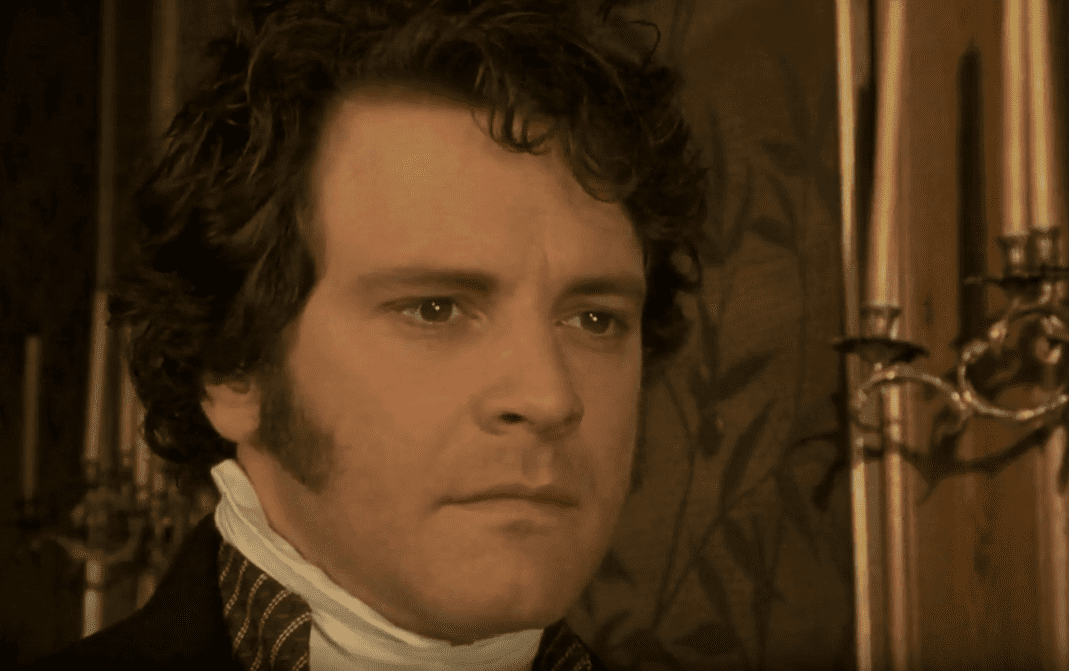 Pride and Prejudice(1995), BBC
Pride and Prejudice(1995), BBC
Sources: 1, 2, 3, 4, 5, 6, 7, 8, 9, 10, 11, 12, 13, 14, 15, 16, 17, 18, 19, 20, 21, 22

